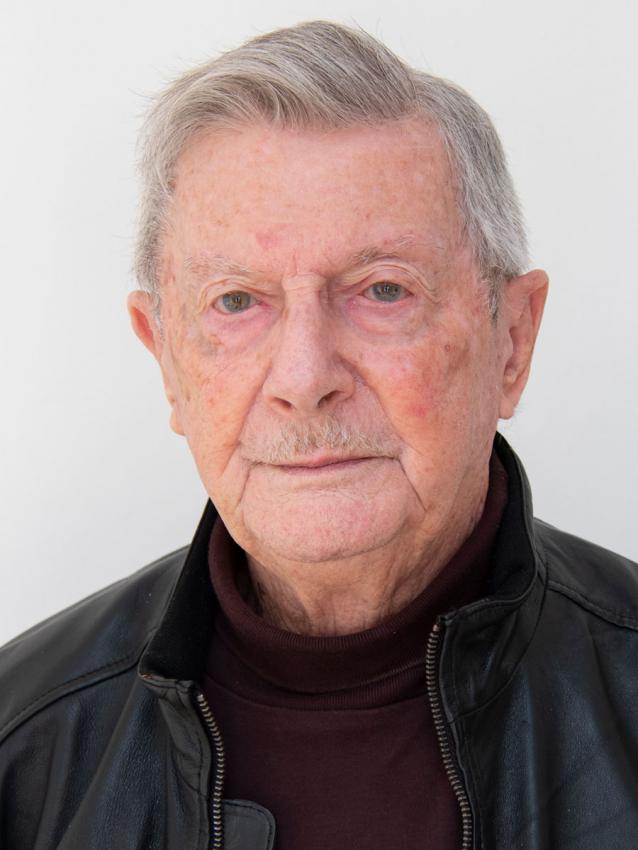Shaul Spielmann lit one of six torches at the State Opening Ceremony of Holocaust Remembrance Day at Yad Vashem in 2022.
Shaul Spielmann was born in 1931 in Vienna, Austria, the only son of Benno, an engineer at the Austrian Electric Company, and Jossefa, a pianist who ran the family-owned delicatessen.
"The day after the Anschluss in March 1938, the principal informed me and the other two Jewish students that because of the Nuremberg Laws we could not continue to study at the school. I returned home in tears. My father told had also been fired."
"Two days later, SA officers broke into our apartment. One put a gun to my head and told my father that if he did not hand over all the money, gold and valuables in the house, he would have to scrape my brain off the wall. Mother collapsed. Father gave them everything. I was terribly afraid the officer would accidentally shoot, because his finger was on the trigger."
The Germans confiscated the family's apartment and delicatessen. The family made a living from Benno's work in the Jewish community. They remained in Austria with Shaul's grandfather, who was too unwell to leave.
One night in September 1942, Shaul and his family were sent to a Jewish school that had been turned into a detention facility and from there were taken to the Terezin ghetto. About a year later, in November 1943, they were deported to Auschwitz.
"I wish I could forget the ramp at Birkenau. There, the gates of hell opened. We were surrounded by SS men with formidable dogs. Screams from the loudspeakers and bright spotlights on all sides." Elderly people, who fell onto the ramp as they exited, were trampled to death by those getting off the wagon. "It was freezing. Even the blood that had been shed froze."
Shaul's grandmother died in the camp. Jossefa became ill and was transferred to the Infirmary Block.
"I knocked on the wall and called her name until she answered me. I managed to move a wooden board and looked inside. She was a skeleton and could not get out of bed. One morning, her body was taken out on a cart."
Shaul's name was on the list of prisoners destined for extermination, but his father Benno, who worked in the camp office as a registrar, moved it to a list of older boys, thus saving him from death. Benno was sent to another labor camp. "I saw my father among the marching prisoners. I managed to throw him a bag over the electric fence. He gestured with his fist: 'Hold on.' That was the last time I saw him." In August 1944, Shaul was selected for extermination. However, the Children's Block overseer, Viennese by birth, appealed the decision, arguing that Shaul was essential for work. Shaul was saved once more.
In January 1945, Shaul and the other prisoners were forced on a death march.
"We walked in forests, on paths strewn with corpses. At night, the prisoners lay on the floor in the frost; by morning, some had frozen to death."
Shaul was liberated by the US Army in the Gunskirchen camp while suffering from typhus. After recovering, he immigrated to Eretz Israel (Mandatory Palestine) and volunteered for the Palmach. He fought and was wounded in the War of Independence. He fought in all the subsequent Israeli wars until the Yom Kippur War. He worked in Magen David Adom in the Negev area, saving many lives and training the younger generations.
Shaul and Myriam have seven children, 18 grandchildren and seven great-grandchildren.


